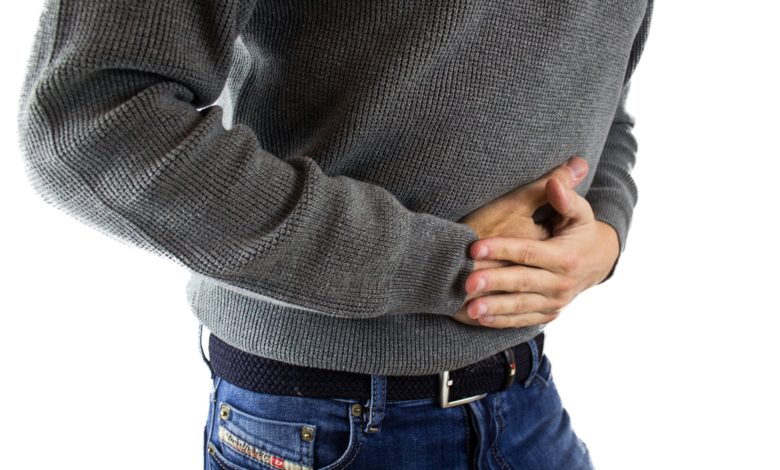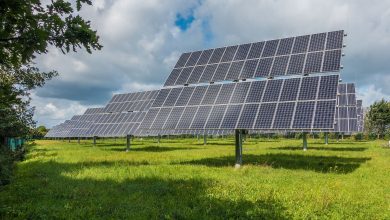How to Prevent Bloating After Eating?

Bloating after eating is usually not a cause for concern, and a person can often prevent these complaints by not consuming too much fiber, avoiding soda, eating and drinking more slowly. Swelling after eating is a feeling that most people experience from time to time. It makes the stomach feel bloated and uncomfortable, which is accompanied by bloating or burping. While bloating isn’t unusual after eating, there are several ways to avoid this condition. This article covers ways to prevent bloating.
The reasons
Bloating after eating is common, but avoiding certain foods can help prevent it. Generally, there is swelling in the abdominal region, which occurs when a large amount of air or gas accumulates in the gastrointestinal tract. Eating is a common cause of bloating because the body produces gas when it digests food. In addition, people swallow air while eating or drinking, which enters the gastrointestinal system. Flatness and burping often help prevent gas and air accumulation in the intestine. Bloating is a symptom of many health conditions, such as irritable bowel syndrome or food intolerance. However, most bloating situations should be avoided. There are some ways that can help reduce or prevent bloating after eating. These ways are as follows:
Paying Attention to Plant-Based Fiber Consumption
Fiber is a carbohydrate in plant-based foods that the body cannot digest. It has some important functions in the body, such as helping regulate blood sugar levels and sugar consumption. However, high fiber foods cause some people to produce excessive amounts of gas. One study found that a diet with reduced fiber helps relieve bloating in people with idiopathic constipation. There are high fiber foods. Examples of these high fiber foods include:
- Beans
- Lentil
- Fruits such as apples and oranges
- Whole grain oats
- Pea
- Broccoli
- Brussels sprouts
Food Intolerance and Allergy Awareness
Bloating is a typical symptom of a food intolerance or allergy. Sensitivity and allergies cause excessive gas production or gas entrapment in the gastrointestinal tract. The foods most likely to cause this are wheat or gluten. There are no reliable tests to identify a specific food intolerance or allergy, so trial and error is the best way to identify them. It helps maintain the food diary to monitor which foods cause symptoms such as bloating.
Avoiding High-Fat Foods
Fat is an essential part of a healthy diet and an important source of energy. The body digests fat slowly because it takes longer to pass through the digestive tract than most other foods and delays stomach emptying. In some people, this causes bloating to occur. For those who experience this, avoiding foods high in fat can help reduce bloating. For example, a study of people with gastric emptying problems found that high-fat solid meals caused an increase in symptoms, including bloating.
Drinking and Eating Slowly
Carbon dioxide in carbonated beverages causes bloating. Drinking or eating too quickly increases the amount of air that a person swallows, causing more gas to accumulate in the gastrointestinal tract. For people who eat and drink fast, this is a cause of bloating, and slowing down their eating speed helps reduce the problem.
Avoiding Carbonated Drinks
Carbonated drinks contain carbon dioxide, a gas that builds up in the gastrointestinal tract and can cause bloating. This is also found in diet versions of sodas. Still water is the best alternative to sodas to reduce the risk of bloating.
Ginger
Ginger is a traditional remedy for digestive problems. It contains carminative that helps reduce excessive gas in the gastrointestinal tract. A study conducted in 2013 suggested that ginger has some health benefits, such as alleviating stomach problems, such as bloating.
Chewing Gum
Chewing gum enables the person to swallow more air. This air can accumulate in the gastrointestinal tract and cause bloating in some people.
Light Exercise After Eating
Gentle exercise, such as taking a walk after a meal, can help reduce bloating for some people. One study found that mild physical exercise helped remove gas from the gastrointestinal tract and relieved bloating.
Avoiding Talking While Eating
Talking while eating increases air swallowing. This causes air to accumulate in the gastrointestinal tract, causing bloating.
Heartburn Treatment
Heartburn is when acid from the stomach travels back into the throat, causing an uncomfortable burning sensation and is also a common cause of bloating. Heartburn treatment is an effective way to reduce bloating for some people. A person can be treated using over-the-counter medications such as antacids such as heartburn.
When to See a Doctor?
If abdominal pain accompanies bloating, it may be an underlying health problem. Bloating after eating is common and usually not a cause for concern. People with bloating can often treat their symptoms at home, such as using one of the methods highlighted in this article. However, swelling can sometimes be a sign of an underlying health condition that may require medical attention. People who have swelling along with other symptoms should see a doctor. These symptoms are as follows:
- Abdominal pain
- Nausea
- Constipation
- Diarrhea
- Tiredness
- Unexpected weight loss
- Skin irritation
In addition, most people who experience bloating after meals should see a specialist.





